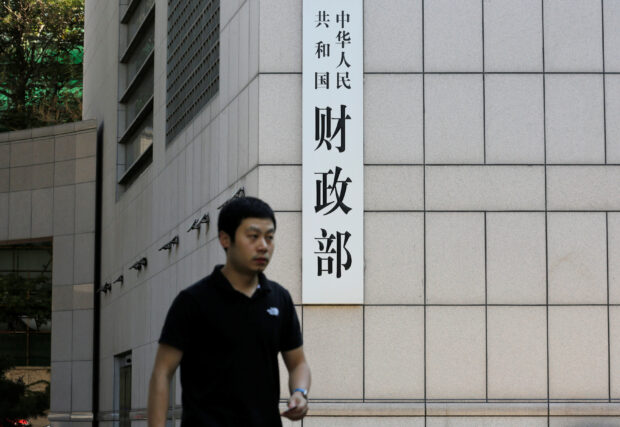China to merge three key asset managers into CIC -Xinhua

The sign of China’s Ministry of Finance is pictured in Beijing, China Aug 23, 2018. REUTERS/Jason Lee/File photo
BEIJING -China plans to merge three of the nation’s biggest bad debt managers into sovereign wealth fund China Investment Corp (CIC), state-run Xinhua Finance News reported, as part of a plan to reform financial institutions.
Three asset management companies (AMCs) – China Cinda Asset Management, China Orient Asset Management and China Great Wall Asset Management – will be incorporated into CIC, Xinhua Finance News reported on its website on Sunday, citing unidentified industry insiders. As of Monday afternoon, the report was no longer accessible on its website.
The Ministry of Finance is the largest shareholder of the three AMCs.
The finance ministry, CIC and China Cinda did not immediately reply to Reuters’ request for comment. Calls to Orient Asset Management and Great Wall went unanswered.
The move is in line with a government commitment to separating its roles as regulator and shareholder of state-owned financial institutions.
With lackluster economic growth, regulators are curbing risk in the nation’s $63-trillion financial industry amid mounting local government debt and crisis in the real estate sector.
READ: China tells banks to roll over local government debts – sources
China established four asset management companies (AMCs) in 1999 to help handle bad loans from its four largest state banks, which were facing the prospect of insolvency.
Local gov’t debt, property crisis
But the distressed asset managers expanded beyond their initial remit, and themselves began to pose a risk to the financial system.
READ: China banks step up sales of bad loans as consumer defaults rise
The government established CIC in 2007 to diversify foreign exchange holdings and seek maximum returns, its website showed. It has registered capital of $200 billion.
China Huarong, which was renamed China CITIC Financial Asset Management last week, was excluded from the merger. The asset manager was taken over by state-owned conglomerate CITIC Group in an overhaul of the troubled asset manager from 2021.